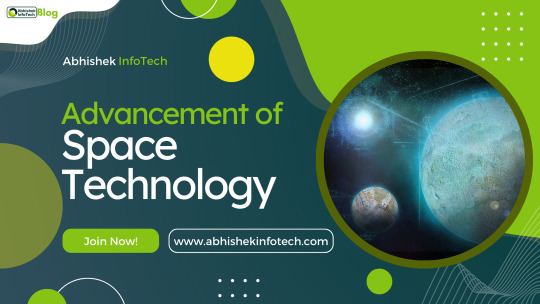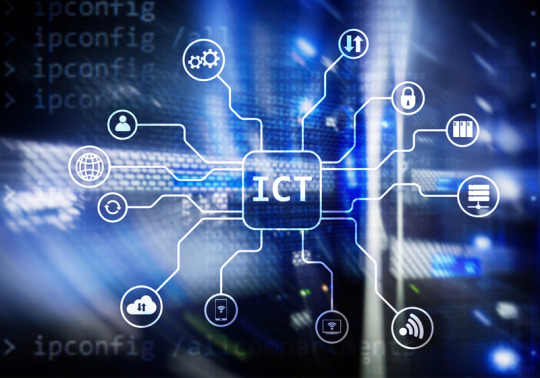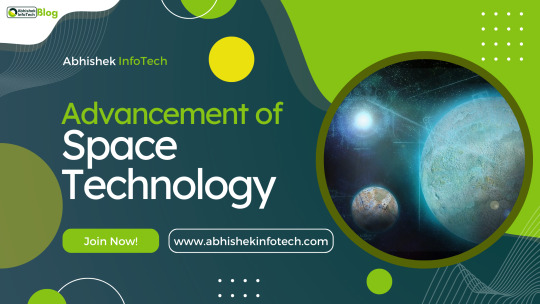#forthebetter
Text

What’s the difference between a really strong weightlifter and a really, really, really strong weightlifter?
Repetitions.
#strong#februllage2023#februllage#collage#weightlifter#repitition#really strong#not working out#forthebetter#more reps#gettingripped#fitness#strategy#artoftheday#flomm#kunst#artwork#flommist#beercoaster#lowbrowart#outsiderart#artist on tumblr#artporn#collageaday#cutandpaste#gluepaperscissors#handcutcollage#dailyartwork#collagecore#perspective
5 notes
·
View notes
Photo

And suddenly... God comes, and changes your plans for better. 📝 unknown @proactiveyellowworld #proactiveyellowworld #suddenly #god #godhasaplan #godsplan #forthebetter #godisgood #godisincontrol #godisgoodallthetime #selflove #love #happiness #positivity #inspiration #mindset #happy #selfcare #selfworth #takecareofyourself #success #motivation 💛💛💛💛💛 (at Miami Beach, Florida) https://www.instagram.com/p/CfZBdzgugV_/?igshid=NGJjMDIxMWI=
#proactiveyellowworld#suddenly#god#godhasaplan#godsplan#forthebetter#godisgood#godisincontrol#godisgoodallthetime#selflove#love#happiness#positivity#inspiration#mindset#happy#selfcare#selfworth#takecareofyourself#success#motivation
0 notes
Photo

"Progress is impossible without change, and those who cannot change their minds cannot change anything." - George Bernard Shaw "We cannot solve our problems with the same thinking we used when we created them." - Albert Einstein The Current Life You are Living is an Accumulation of Your Past Decisions. Decides What You Want to Do Now Like Your Life Depends on It will help You Prioritize and Strips away all the Unnecessities. #Change #Changes #LifeChange #LifeChanges #LifeChanger #Life #Choice #Choices #LifeChoice #LifeChoices #Progress #Problem #ProblemSolving #ChallengeAccepted #IAmPossible #ChangeYourMindset #ChangeMindset #ChangeYourMindsetChangeYourLife #ForTheBetter #Prioritize #TakeActionNow #YourLifeYourWay #LifeDecisions #DoOrDie #GoBigOrGoHome #KnowBetter #KnowBetterDoBetter #DoBetter #DoBetterBeBetter #BeBetter https://www.instagram.com/p/CdOPk_hJvJK/?igshid=NGJjMDIxMWI=
#change#changes#lifechange#lifechanges#lifechanger#life#choice#choices#lifechoice#lifechoices#progress#problem#problemsolving#challengeaccepted#iampossible#changeyourmindset#changemindset#changeyourmindsetchangeyourlife#forthebetter#prioritize#takeactionnow#yourlifeyourway#lifedecisions#doordie#gobigorgohome#knowbetter#knowbetterdobetter#dobetter#dobetterbebetter#bebetter
0 notes
Text
How Space Technology is Changing Our World (for the Better)

The Advancement of Space Technology
For many years, human curiosity and ingenuity have been led by space technology. Our exploration of space and the technology that make it possible have advanced at an astounding rate, starting with the momentous moon landing in 1969 and continuing with the deployment of powerful satellites circling the Earth. We will explore the incredible developments in satellite technology and space exploration in this blog article. We will also look at how these extraterrestrial technologies have a big impact on life on Earth.
The vast expanse of outer space has always fascinated humanity, beckoning us to explore its mysteries. Over the years, space technology has evolved exponentially, enabling us to venture into the cosmos and develop satellite systems that have revolutionized life on Earth. In this blog, we will delve into the remarkable advancements in space exploration and satellite technology, and how these innovations have benefited us right here on our home planet.
Space Exploration: From Dreams to Reality
Space exploration has always captured the imagination of humanity. It represents our innate desire to explore the unknown, to push boundaries, and to expand our knowledge. Over the years, advancements in space technology have allowed us to turn these dreams into reality.
- Robotic Exploration: One of the most significant advancements in space exploration is the use of robotic spacecraft. These uncrewed missions have allowed us to explore distant planets, asteroids, and comets. For instance, the Mars rovers, such as Curiosity and Perseverance, have provided us with invaluable insights into the Martian environment and the possibility of past life on the Red Planet.
- Human Spaceflight: While robotic missions are crucial, human spaceflight continues to be a driving force behind space exploration. The International Space Station (ISS) stands as a testament to international collaboration and a platform for scientific research. The experience gained from living and working in space is invaluable for future missions to Mars and beyond.
Advancements in Space Exploration
- Rovers on Mars and Beyond Space exploration have reached unprecedented heights with the deployment of rovers on distant planets. The Mars rovers, such as Curiosity and Perseverance, have provided us with invaluable data about the Martian terrain, climate, and the possibility of past life. These rovers are equipped with cutting-edge instruments, including cameras, spectrometers, and drill systems, enabling them to analyze rock samples and send high-resolution images back to Earth. The information gathered by these rovers not only fuels scientific curiosity but also lays the foundation for potential human missions to Mars in the future. Moreover, the technologies developed for these missions, such as autonomous navigation and communication systems, have applications on Earth, including in autonomous vehicles and remote communication networks.
- Asteroid and Comet Missions NASA's OSIRIS-REx and Japan's Hayabusa2 missions have demonstrated our ability to rendezvous with and collect samples from distant celestial bodies. These missions are essential for understanding the early solar system and assessing potential threats from near-Earth objects (NEOs). On Earth, the knowledge gained from these missions can be used to develop strategies for asteroid deflection, ensuring the safety of our planet from potential impact events. The technology used for precise navigation and sample collection has also paved the way for advancements in robotic surgery and autonomous medical procedures.
- International Collaboration in Space The International Space Station (ISS) stands as a symbol of international cooperation in space exploration. Astronauts from various countries live and work together aboard the ISS, conducting experiments that benefit humanity as a whole. Space agencies worldwide collaborate on these projects, sharing knowledge, expertise, and resources. These collaborative efforts extend to satellite launches, space telescopes, and planetary missions. The spirit of cooperation in space exploration serves as a blueprint for addressing global challenges on Earth, such as climate change and pandemics.
Satellite Technology: Revolutionizing Our World
Satellites are the unsung heroes of the space technology realm. They have become an integral part of our daily lives, revolutionizing communication, navigation, weather forecasting, and more.
- Communications: Communication satellites, like the ones in geostationary orbit, enable global connectivity. They facilitate everything from phone calls and internet browsing to television broadcasts. The way we communicate and share information has been transformed by these orbiting giants.
- Earth Observation: Satellites equipped with advanced imaging technology allow us to monitor our planet's health. From tracking deforestation and climate change to aiding disaster management and urban planning, these satellites have far-reaching applications.
- Navigation: Global Navigation Satellite Systems (GNSS), including GPS, have made navigation more precise and accessible. These systems are essential not only for getting directions but also for applications in agriculture, transportation, and disaster response.
- Scientific Research: Satellites play a pivotal role in scientific research. They are instrumental in studying climate patterns, ocean currents, and atmospheric conditions. Additionally, they help astronomers explore the cosmos by observing distant celestial objects.
Advancements in Satellite Technology
- Miniaturization and CubeSats Traditional satellites used to be massive and expensive to build and launch. However, the advent of CubeSats, small and standardized satellites, has revolutionized the satellite industry. These miniature satellites are cost-effective and can be deployed in constellations, providing a wide range of applications, from Earth observation to global internet coverage. CubeSats have democratized access to space, allowing universities, startups, and developing countries to participate in space-based research and services. Earth benefits from CubeSats through improved weather forecasting, disaster monitoring, and communication networks in remote areas.
- Earth Observation Satellites Earth observation satellites equipped with advanced sensors and imaging technology have transformed our understanding of our planet. They monitor changes in climate, weather patterns, and environmental conditions, helping us make informed decisions about resource management, disaster response, and conservation efforts. These satellites play a crucial role in mitigating the effects of climate change by providing essential data for climate modeling and environmental monitoring. For instance, they track deforestation, monitor sea level rise, and aid in disaster management by providing real-time information during hurricanes, wildfires, and earthquakes.
- Global Positioning System (GPS) GPS technology, initially developed for military purposes, has become an integral part of our daily lives. It provides accurate positioning and timing information that powers navigation systems in vehicles, smartphones, and countless other applications. GPS has revolutionized transportation, logistics, agriculture, and even personal fitness tracking. Its precision allows for more efficient routes, reducing fuel consumption and emissions. Moreover, it enhances safety by enabling emergency services to locate individuals in distress quickly.
Space Technologies Benefiting Life on Earth
The advancements in space technology not only inspire awe but also bring tangible benefits to life on Earth. Here are some ways space technologies have a positive impact on our planet:
- Environmental Monitoring: Satellites provide vital data for monitoring and mitigating environmental issues. They help us track deforestation, assess the health of oceans, monitor air quality, and study the effects of climate change. This information empowers policymakers and scientists to make informed decisions to protect our planet.
- Disaster Management: During natural disasters like hurricanes, wildfires, and earthquakes, space technologies play a crucial role. Satellite imagery assists in assessing damage, coordinating rescue efforts, and providing early warnings to communities at risk.
- Precision Agriculture: Precision agriculture relies on satellite data to optimize farming practices. Farmers can use this technology to monitor soil moisture, crop health, and weather conditions, resulting in increased crop yields and reduced environmental impact.
- Telemedicine: Remote and underserved areas around the world benefit from telemedicine made possible by satellite communications. Doctors can consult with patients and provide medical advice even in remote regions lacking traditional healthcare infrastructure.
- Navigation and Transportation: GPS and other navigation systems have revolutionized transportation. They enhance safety, optimize logistics, and reduce fuel consumption, leading to more efficient and sustainable mobility.
- Scientific Discoveries: Space missions not only expand our knowledge of the universe but also lead to technological breakthroughs. For example, the development of lightweight materials, energy-efficient systems, and water purification technologies used in space missions has practical applications on Earth.

Advancement of Space Technology
Benefits of Space Technology on Earth
- Communication Revolution The development of satellite-based communication systems has connected the world in ways once deemed impossible. Satellites in geostationary orbit provide global coverage for television, internet, and telephone services, enabling instantaneous communication across continents. This connectivity has transformed industries such as telemedicine, e-learning, and remote work, making it possible for people to access essential services and education from virtually anywhere on Earth.
- Environmental Sustainability Space technology has played a pivotal role in monitoring and addressing environmental challenges. Satellites continuously track deforestation, monitor air and water quality, and assess the impact of climate change on ecosystems. This information empowers governments and organizations to make data-driven decisions to combat deforestation, reduce pollution, and develop sustainable land-use practices. It is instrumental in preserving biodiversity and mitigating the effects of climate change.
- Disaster Management Space technology aids in disaster management by providing early warning systems and real-time data during emergencies. Earthquakes, hurricanes, wildfires, and floods can be monitored and responded to more effectively with satellite imagery and communication systems. Timely information enables emergency responders to plan and execute rescue and relief operations efficiently, ultimately saving lives and minimizing damage.
- Precision Agriculture Agriculture has benefited immensely from space technology. Satellites provide farmers with data on soil moisture, crop health, and weather patterns, allowing for precise and efficient farming practices. Precision agriculture reduces water and fertilizer usage, minimizes waste, and increases crop yields. This not only contributes to food security but also reduces the environmental impact of agriculture.
Overview of Space Technology
Space technology has come a long way, transforming our dreams of exploring the cosmos into reality. Through robotic missions and human spaceflight, we continue to push the boundaries of our knowledge. Moreover, satellites have revolutionized how we live, work, and interact with our planet. From communication to disaster management, these orbiting marvels have become indispensable.
Perhaps the most significant aspect of space technology is how it benefits life on Earth. It helps us monitor and protect our environment, improves healthcare access, enhances agriculture, and makes transportation safer and more efficient. As we look to the future, space technology will undoubtedly continue to enrich our lives, foster innovation, and pave the way for even more remarkable discoveries both in space and on our home planet.
Factors of Space Technology
Space technology has come a long way, expanding our horizons and bringing countless benefits to life on Earth. From advancements in space exploration, enabling us to explore distant planets, to the transformative impact of satellite technology on communication, environmental sustainability, disaster management, and agriculture, the innovations born from space endeavors touch nearly every aspect of our lives.
As we continue to push the boundaries of space exploration, it is clear that the knowledge and technologies developed for these missions will continue to find new and innovative applications here on our home planet, making the investment in space technology one of the most promising and beneficial endeavors for humanity.
Read This Also 👉 Fiverr Affiliate Program. How to earn $1000 per month with Fiverr Affiliate?
Watch Video 📺 👉 How to Earn Money Online? Create a Fiverr Buyer and Seller Account | Abhishek InfoTech

Read the full article
#AdvancementsinSatelliteTechnology#AdvancementsinSpaceExploration#AdvancementsinSpaceTech:BenefitsforEarthfromSpaceExplorationandSatellites#andEarthlyBenefits#EarthlyBenefitsofSpaceExploration:AComprehensiveGuide#EarthlyBenefitsofSpaceTechnology:HowSpaceExplorationandSatellitesareImprovingOurLives#FactorsofSpaceTechnology#HowNewSpaceTechnologiesAreImprovingOurLivesonEarth:AComprehensiveGuide#HowNewSpaceTechnologiesareRevolutionizingEarthObservation#HowNewSpaceTechnologiesareRevolutionizingEarthObservationandClimateMonitoring#HowSpaceTechnologyisChangingOurWorld#HowSpaceTechnologyisChangingOurWorld(fortheBetter)#OneInnovationataTime#OverviewofSpaceTechnology#SatelliteTechnology#SatelliteTechnology:RevolutionizingOurWorld#SatelliteTechnology:ThePowertoConnectandInnovate#Science#SpaceExploration:FromDreamstoReality#SpaceTechnologiesBenefitingLifeonEarth#SpaceTechnology#SpaceTechnology:AGlimpseintotheFutureofEarthlyInnovation#SpaceTechnology:DrivingInnovationonEarthandBeyond#SpaceTechnology:HereisWhatYouCanAccomplishWithThem#SpaceTechnology:RevolutionizingEarthwithAdvancementsinSpaceExploration#SpaceTechnology:TheEarthlyBenefitsofSpaceExplorationandSatelliteTechnology#SpaceTechnology:TheFutureofEarthisintheStars#SpaceTechnology:TheNextFrontierofEarthlyInnovation#SpaceTechnology\'sImpactonOurPlanet:ALookattheFuture#TheAdvancementofSpaceTechnology
0 notes
Text


ICT AS AN EMPOWERMENT TOOL
ICT is an abbreviation for information technology that emphasizes the need for unified communications and telecommunications and computer integration. With a lot of engagement in the digital world, ICT also helps pupils widen their awareness of the current world. It's more about participating and improving yourself while working within the constraints of existing technology. With the technologies at our hands, we can accomplish a good part. We also have access to a variety of ICT tools and platforms that we may utilize to strengthen our causes and develop our skills.
We used to have a computer science class in our school when there were still face-to-face classes, and it taught us a lot of useful skills that we may use now and in the future. Coding, Photoshop features, and basic programming were just a few of the things I learned in Junior High School Computer Science class. We developed a little robot that we also programmed before the outbreak and before leaving our school. Things were different back then; we were given actual performance tasks to complete to order to implement what we had learned.
When the pandemic struck, all face-to-face classes were suspended, which we thought was a good choice for the students. I believe that our Computer Science class has been adversely affected as a result of the fact that we are no longer able to perform actual performances, including continuing to create our robot, which is pretty unfortunate. However, when classes resumed during the pandemic, I discovered that there are numerous ways to engage with this subject. There are many things we can accomplish, such as photo editing, video editing, and blogging. We also discovered several valuable ICT platforms and apps, as well as new insights like basic etiquette. Despite the difficulties, the pandemic is not preventing people from improving their ICT skills and learning new things. I've witnessed how technology and the internet have influenced our hobbies and talents. It appears to have grown with us for the past two years, during the pandemic. Many people were more forthcoming about their talents and skills, particularly in the area of digital art, which I have seen a lot of people are interested in.
This topic has changed my perspective on ICT significantly, especially now that we are in the midst of a pandemic and most of us are using a variety of technology. I avoided those things because I used to think of ICT as a complicated, difficult-to-understand subject, and I was really not interested in doing anything that had anything to do with technology. But, as I began to learn new things, I discovered that I can learn new things one at a time and piece by piece. I realized that ICT is not difficult or complex; all you need is to enjoy it and participate with it in a way that allows you to learn while doing so.
They are, in my opinion, tools to be employed in obtaining higher aims. Data comparing technology users in our country from 2017 to 2021 shows that data in 2021 is 11% higher than in 2017. With these figures, I am certain that ICT and technology will have a greater impact in our country, especially now that we are progressing and they may be leveraged to achieve higher goals.
I've visited a lot of internet sites and seen different ways in which ICT is being utilized on various platforms, some of which I agree with and some of which I disagree with. There are many ways individuals use contemporary technology, but there are also many benefits and drawbacks. I'll start with the benefits: because of the widespread usage of social media and other platforms, it's easier for us to interact with others. It's also a way of developing and sharing our skills, as well as a manner of conducting business that has a significant impact on our economy. The negative is how it is used by others to threaten and commit horrible crimes on social media. One of the most serious drawbacks is the prevalence of misinformation in our country, which makes others more susceptible to believing in fake news. According to the latest Pulse Asia study, 47 percent of Filipinos have internet connection. Almost all of them, or 98 percent, access their social media accounts via the internet. Fake news is well-known among Filipinos who use the internet to access their social media accounts. Eighty-eight percent of individuals who check their social media accounts online are aware of fake news, and the majority of them (79 percent) believe it is "widely circulated on social media." There are numerous advantages and disadvantages to using ICT platforms; nonetheless, it is our job as consumers to use them appropriately.
The only thing I can advise ICT users in our country to do is to utilize them wisely, correctly, and honestly; these three things alone can influence a lot of people's minds about ICT. This may rekindle the desire in young people's hearts to follow their goals of using ICT. It enables people to keep track of and manage their own learning, think critically and creatively, solve simulated real-world problems, collaborate, make ethical decisions, and take a global view of topics and ideas.
4 notes
·
View notes
Photo

What you’re doing matters! No matter how small the effect or unforeseeable the outcome. No matter how fast or slow the speed. No matter the direction, level, or landscape. Whatever you’re doing WILL make a difference.
Competition has nothing to do with it.
#digitalmedia#change#forthebetter#mental heath support#ripples#waves#documentary#mental help#competition#graphic#change your thinking#self compassion#treasures#mental heath awareness#tides#humanity#mental health
2 notes
·
View notes
Photo

I know it’s been a dumpster fire of a year, least of which being the 230,000+ American lives we’ve lost thus far (including RBG and John Lewis). We’ve faced a pandemic that appears to be playing Russian Roulette with our lives, our national politic seems to be as divisive as ever before (with a vast number of us sick of having to choose the lesser of two evil candidates), and to top it all off, I anticipate a lengthy, contested fight over election results that will probably drag on for the rest of the year and maybe even bring us into the next. And yet, I’m encouraged by the number of eligible voters taking this election seriously. I’m happy to see larger conversations taking place regarding criminal justice issues, race relations, systemic inequities in healthcare and education, and how to hold our political representatives accountable to their electorate. Maybe we can rise from the ashes of the fire and remember there’s a lot more that ties us together than tears us apart, that we don’t have to rip each other to shreds in order to make our points, and that none of us has it all figured out yet. We can all do better by learning from each other, working together, and striving to do and be better than we did and were yesterday. Make sure you go out and vote today if you haven’t already, but the real work continues in the days and weeks and months that follow. #vote #vote2020 #electionday #election2020 #election #stayactive #stayinformed #stayengaged #politics #knowyourrights #changethesystem #forthebetter #🇺🇸 https://www.instagram.com/p/CHI30K5HIOa/?igshid=qm72klxecmwm
#vote#vote2020#electionday#election2020#election#stayactive#stayinformed#stayengaged#politics#knowyourrights#changethesystem#forthebetter#🇺🇸
1 note
·
View note
Photo

My roomie caught a dragonfly last night outside our apartment! It’s a sign that big change is on the horizon! #forthebetter #transformation #dragonfly (at Pacific Beach) https://www.instagram.com/p/CF5-Gc0jTra/?igshid=2kzpz4olgxqx
1 note
·
View note
Photo

1 note
·
View note
Photo

Photog: @jtyoungphoto Shirt: @saneclothing I love this movie! The shirt isnt accurate, well the whole outfit isnt but hopefully it still makes sense. This was a very fun collab between the team and im happy with it. Would love to do it again #chain #captive #forthebetter #sickness #blacksnakemoan #christinaricci #cosplay #sexycosplay #harleypage #collaborations https://www.instagram.com/p/Bz09GEChvaS/?igshid=1krzy38yig80g
#chain#captive#forthebetter#sickness#blacksnakemoan#christinaricci#cosplay#sexycosplay#harleypage#collaborations
2 notes
·
View notes
Text
Hmmm....
I started talking to this really nice guy on SC. He sounds really sweet and respects my boundaries. He actually intrigues my mind. He wants to talk and we have some good competition going on with sports. I like how he talks to me and makes me feel wanted. I know I said I don’t need a man to complete me but I do like feeling wanted every now and then, especially when I haven’t felt great about myself in a long time. Anyway, he lives in the same town as me, is 34, and has a steady job. We got to talking so well the other night, we stayed up until about 4:30 in the morning. We were talking about everything, like what we’ve already gone through in our lives, how we think it’s changed us, he keeps encouraging me to stay positive when I told him that school was getting the best of me, and we even both understand that we both have kids and we’ll have to see how this comes to be before anything is ever said to them. I’m excited for this. I really am.
1 note
·
View note
Photo

Sometimes you run into people who change your life for the better.
Those people are called bartenders.
#lifechanger#specialpeople#bartenders#keepmegoing#notyouagain#insight#forthebetter#truth#enablers#unpaidtherapist#humor#cocktailsforyou#painting#acrylic#artoftheday#artwork#dailyartwork#artist on tumblr#artporn#outsiderart#lowbrowart#kunst#flomm#flommist#handpaintedbeercoaster#beermat#beercoaster#bierdeckel#perspective
1 note
·
View note
Text

#hands#handart#holdinghands#background#wallpaper#quotes#breakup#lettinggo#growingup#settling#twohands#maturing#improvement#forthebetter#break#strong
9 notes
·
View notes
Photo

Change is the Only Constant in this World "Progress is impossible without change, and those who cannot change their minds cannot change anything." - George Bernard Shaw “We cannot solve our problems with the same thinking we used when we created them.” - Albert Einstein #Change #Changes #TheOnlyConstantIsChange #ChangeQuotes #ChangeYourMind #ChangeYourMindset #ChangeYourMindsetChangeYourLife #ChangeYourLife #Progress #ChangeForTheBetter #ChangeForGood #ChangeForBetter #ForTheBetter #Problem #Problems #ProblemSolving #ProblemSolvingSkills #LadderOfInference #SuspendJudgment #Thinking #MentalModels #ChangeMindset #EmbraceChange https://www.instagram.com/p/Cc5opbRJfr6/?igshid=NGJjMDIxMWI=
#change#changes#theonlyconstantischange#changequotes#changeyourmind#changeyourmindset#changeyourmindsetchangeyourlife#changeyourlife#progress#changeforthebetter#changeforgood#changeforbetter#forthebetter#problem#problems#problemsolving#problemsolvingskills#ladderofinference#suspendjudgment#thinking#mentalmodels#changemindset#embracechange
0 notes
Text
How Space Technology is Changing Our World (for the Better)

The Advancement of Space Technology
For many years, human curiosity and ingenuity have been led by space technology. Our exploration of space and the technology that make it possible have advanced at an astounding rate, starting with the momentous moon landing in 1969 and continuing with the deployment of powerful satellites circling the Earth. We will explore the incredible developments in satellite technology and space exploration in this blog article. We will also look at how these extraterrestrial technologies have a big impact on life on Earth.
The vast expanse of outer space has always fascinated humanity, beckoning us to explore its mysteries. Over the years, space technology has evolved exponentially, enabling us to venture into the cosmos and develop satellite systems that have revolutionized life on Earth. In this blog, we will delve into the remarkable advancements in space exploration and satellite technology, and how these innovations have benefited us right here on our home planet.
Space Exploration: From Dreams to Reality
Space exploration has always captured the imagination of humanity. It represents our innate desire to explore the unknown, to push boundaries, and to expand our knowledge. Over the years, advancements in space technology have allowed us to turn these dreams into reality.
- Robotic Exploration: One of the most significant advancements in space exploration is the use of robotic spacecraft. These uncrewed missions have allowed us to explore distant planets, asteroids, and comets. For instance, the Mars rovers, such as Curiosity and Perseverance, have provided us with invaluable insights into the Martian environment and the possibility of past life on the Red Planet.
- Human Spaceflight: While robotic missions are crucial, human spaceflight continues to be a driving force behind space exploration. The International Space Station (ISS) stands as a testament to international collaboration and a platform for scientific research. The experience gained from living and working in space is invaluable for future missions to Mars and beyond.
Advancements in Space Exploration
- Rovers on Mars and Beyond Space exploration have reached unprecedented heights with the deployment of rovers on distant planets. The Mars rovers, such as Curiosity and Perseverance, have provided us with invaluable data about the Martian terrain, climate, and the possibility of past life. These rovers are equipped with cutting-edge instruments, including cameras, spectrometers, and drill systems, enabling them to analyze rock samples and send high-resolution images back to Earth. The information gathered by these rovers not only fuels scientific curiosity but also lays the foundation for potential human missions to Mars in the future. Moreover, the technologies developed for these missions, such as autonomous navigation and communication systems, have applications on Earth, including in autonomous vehicles and remote communication networks.
- Asteroid and Comet Missions NASA's OSIRIS-REx and Japan's Hayabusa2 missions have demonstrated our ability to rendezvous with and collect samples from distant celestial bodies. These missions are essential for understanding the early solar system and assessing potential threats from near-Earth objects (NEOs). On Earth, the knowledge gained from these missions can be used to develop strategies for asteroid deflection, ensuring the safety of our planet from potential impact events. The technology used for precise navigation and sample collection has also paved the way for advancements in robotic surgery and autonomous medical procedures.
- International Collaboration in Space The International Space Station (ISS) stands as a symbol of international cooperation in space exploration. Astronauts from various countries live and work together aboard the ISS, conducting experiments that benefit humanity as a whole. Space agencies worldwide collaborate on these projects, sharing knowledge, expertise, and resources. These collaborative efforts extend to satellite launches, space telescopes, and planetary missions. The spirit of cooperation in space exploration serves as a blueprint for addressing global challenges on Earth, such as climate change and pandemics.
Satellite Technology: Revolutionizing Our World
Satellites are the unsung heroes of the space technology realm. They have become an integral part of our daily lives, revolutionizing communication, navigation, weather forecasting, and more.
- Communications: Communication satellites, like the ones in geostationary orbit, enable global connectivity. They facilitate everything from phone calls and internet browsing to television broadcasts. The way we communicate and share information has been transformed by these orbiting giants.
- Earth Observation: Satellites equipped with advanced imaging technology allow us to monitor our planet's health. From tracking deforestation and climate change to aiding disaster management and urban planning, these satellites have far-reaching applications.
- Navigation: Global Navigation Satellite Systems (GNSS), including GPS, have made navigation more precise and accessible. These systems are essential not only for getting directions but also for applications in agriculture, transportation, and disaster response.
- Scientific Research: Satellites play a pivotal role in scientific research. They are instrumental in studying climate patterns, ocean currents, and atmospheric conditions. Additionally, they help astronomers explore the cosmos by observing distant celestial objects.
Advancements in Satellite Technology
- Miniaturization and CubeSats Traditional satellites used to be massive and expensive to build and launch. However, the advent of CubeSats, small and standardized satellites, has revolutionized the satellite industry. These miniature satellites are cost-effective and can be deployed in constellations, providing a wide range of applications, from Earth observation to global internet coverage. CubeSats have democratized access to space, allowing universities, startups, and developing countries to participate in space-based research and services. Earth benefits from CubeSats through improved weather forecasting, disaster monitoring, and communication networks in remote areas.
- Earth Observation Satellites Earth observation satellites equipped with advanced sensors and imaging technology have transformed our understanding of our planet. They monitor changes in climate, weather patterns, and environmental conditions, helping us make informed decisions about resource management, disaster response, and conservation efforts. These satellites play a crucial role in mitigating the effects of climate change by providing essential data for climate modeling and environmental monitoring. For instance, they track deforestation, monitor sea level rise, and aid in disaster management by providing real-time information during hurricanes, wildfires, and earthquakes.
- Global Positioning System (GPS) GPS technology, initially developed for military purposes, has become an integral part of our daily lives. It provides accurate positioning and timing information that powers navigation systems in vehicles, smartphones, and countless other applications. GPS has revolutionized transportation, logistics, agriculture, and even personal fitness tracking. Its precision allows for more efficient routes, reducing fuel consumption and emissions. Moreover, it enhances safety by enabling emergency services to locate individuals in distress quickly.
Space Technologies Benefiting Life on Earth
The advancements in space technology not only inspire awe but also bring tangible benefits to life on Earth. Here are some ways space technologies have a positive impact on our planet:
- Environmental Monitoring: Satellites provide vital data for monitoring and mitigating environmental issues. They help us track deforestation, assess the health of oceans, monitor air quality, and study the effects of climate change. This information empowers policymakers and scientists to make informed decisions to protect our planet.
- Disaster Management: During natural disasters like hurricanes, wildfires, and earthquakes, space technologies play a crucial role. Satellite imagery assists in assessing damage, coordinating rescue efforts, and providing early warnings to communities at risk.
- Precision Agriculture: Precision agriculture relies on satellite data to optimize farming practices. Farmers can use this technology to monitor soil moisture, crop health, and weather conditions, resulting in increased crop yields and reduced environmental impact.
- Telemedicine: Remote and underserved areas around the world benefit from telemedicine made possible by satellite communications. Doctors can consult with patients and provide medical advice even in remote regions lacking traditional healthcare infrastructure.
- Navigation and Transportation: GPS and other navigation systems have revolutionized transportation. They enhance safety, optimize logistics, and reduce fuel consumption, leading to more efficient and sustainable mobility.
- Scientific Discoveries: Space missions not only expand our knowledge of the universe but also lead to technological breakthroughs. For example, the development of lightweight materials, energy-efficient systems, and water purification technologies used in space missions has practical applications on Earth.

Advancement of Space Technology
Benefits of Space Technology on Earth
- Communication Revolution The development of satellite-based communication systems has connected the world in ways once deemed impossible. Satellites in geostationary orbit provide global coverage for television, internet, and telephone services, enabling instantaneous communication across continents. This connectivity has transformed industries such as telemedicine, e-learning, and remote work, making it possible for people to access essential services and education from virtually anywhere on Earth.
- Environmental Sustainability Space technology has played a pivotal role in monitoring and addressing environmental challenges. Satellites continuously track deforestation, monitor air and water quality, and assess the impact of climate change on ecosystems. This information empowers governments and organizations to make data-driven decisions to combat deforestation, reduce pollution, and develop sustainable land-use practices. It is instrumental in preserving biodiversity and mitigating the effects of climate change.
- Disaster Management Space technology aids in disaster management by providing early warning systems and real-time data during emergencies. Earthquakes, hurricanes, wildfires, and floods can be monitored and responded to more effectively with satellite imagery and communication systems. Timely information enables emergency responders to plan and execute rescue and relief operations efficiently, ultimately saving lives and minimizing damage.
- Precision Agriculture Agriculture has benefited immensely from space technology. Satellites provide farmers with data on soil moisture, crop health, and weather patterns, allowing for precise and efficient farming practices. Precision agriculture reduces water and fertilizer usage, minimizes waste, and increases crop yields. This not only contributes to food security but also reduces the environmental impact of agriculture.
Overview of Space Technology
Space technology has come a long way, transforming our dreams of exploring the cosmos into reality. Through robotic missions and human spaceflight, we continue to push the boundaries of our knowledge. Moreover, satellites have revolutionized how we live, work, and interact with our planet. From communication to disaster management, these orbiting marvels have become indispensable.
Perhaps the most significant aspect of space technology is how it benefits life on Earth. It helps us monitor and protect our environment, improves healthcare access, enhances agriculture, and makes transportation safer and more efficient. As we look to the future, space technology will undoubtedly continue to enrich our lives, foster innovation, and pave the way for even more remarkable discoveries both in space and on our home planet.
Factors of Space Technology
Space technology has come a long way, expanding our horizons and bringing countless benefits to life on Earth. From advancements in space exploration, enabling us to explore distant planets, to the transformative impact of satellite technology on communication, environmental sustainability, disaster management, and agriculture, the innovations born from space endeavors touch nearly every aspect of our lives.
As we continue to push the boundaries of space exploration, it is clear that the knowledge and technologies developed for these missions will continue to find new and innovative applications here on our home planet, making the investment in space technology one of the most promising and beneficial endeavors for humanity.
Read This Also 👉 Fiverr Affiliate Program. How to earn $1000 per month with Fiverr Affiliate?
Watch Video 📺 👉 How to Earn Money Online? Create a Fiverr Buyer and Seller Account | Abhishek InfoTech

Read the full article
#AdvancementsinSatelliteTechnology#AdvancementsinSpaceExploration#AdvancementsinSpaceTech:BenefitsforEarthfromSpaceExplorationandSatellites#andEarthlyBenefits#EarthlyBenefitsofSpaceExploration:AComprehensiveGuide#EarthlyBenefitsofSpaceTechnology:HowSpaceExplorationandSatellitesareImprovingOurLives#FactorsofSpaceTechnology#HowNewSpaceTechnologiesAreImprovingOurLivesonEarth:AComprehensiveGuide#HowNewSpaceTechnologiesareRevolutionizingEarthObservation#HowNewSpaceTechnologiesareRevolutionizingEarthObservationandClimateMonitoring#HowSpaceTechnologyisChangingOurWorld#HowSpaceTechnologyisChangingOurWorld(fortheBetter)#OneInnovationataTime#OverviewofSpaceTechnology#SatelliteTechnology#SatelliteTechnology:RevolutionizingOurWorld#SatelliteTechnology:ThePowertoConnectandInnovate#Science#SpaceExploration:FromDreamstoReality#SpaceTechnologiesBenefitingLifeonEarth#SpaceTechnology#SpaceTechnology:AGlimpseintotheFutureofEarthlyInnovation#SpaceTechnology:DrivingInnovationonEarthandBeyond#SpaceTechnology:HereisWhatYouCanAccomplishWithThem#SpaceTechnology:RevolutionizingEarthwithAdvancementsinSpaceExploration#SpaceTechnology:TheEarthlyBenefitsofSpaceExplorationandSatelliteTechnology#SpaceTechnology:TheFutureofEarthisintheStars#SpaceTechnology:TheNextFrontierofEarthlyInnovation#SpaceTechnology'sImpactonOurPlanet:ALookattheFuture#TheAdvancementofSpaceTechnology
0 notes
Text
It's a cruel cycle we continue to complete. We leave a place with no intention of coming back, but when we do, all thoughts of change and a better future is wiped out by the constinceny we thought we left behind.
-recklesssensation
#cycle#imhome#rip#cruel#change#nochange#constinceny#humannature#poem#recklesssensation#thoughts#future#forthebetter
1 note
·
View note